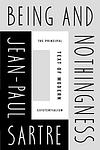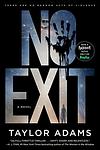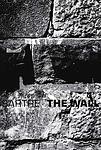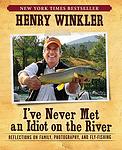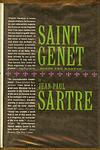Jean Paul Sartre
Jean-Paul Sartre was a prominent philosopher, playwright, novelist, political activist, biographer, and literary critic. He was one of the key figures in the philosophy of existentialism and phenomenology, and one of the leading figures in 20th-century French philosophy and Marxism. His work has also influenced sociology, critical theory, post-colonial theory, and literary studies, and continues to influence these disciplines. Sartre was also noted for his open relationship with the prominent feminist theorist Simone de Beauvoir. He was awarded the Nobel Prize in Literature in 1964, which he famously declined.
Books
This list of books are ONLY the books that have been ranked on the lists that are aggregated on this site. This is not a comprehensive list of all books by this author.
-
1. Nausea
The novel follows a historian living in a small French town, struggling with a strange and unsettling feeling of disgust and revulsion he calls 'nausea'. He grapples with the existential dread of his own existence and the meaningless of life, continually questioning his own perceptions and the nature of reality. As he navigates through his everyday life, he is plagued by his philosophical thoughts and the overwhelming sensation of nausea, leading him to a profound existential crisis.
-
2. Being and Nothingness
This philosophical work delves into the concept of existentialism and phenomenology, offering an in-depth analysis of human consciousness and existence. The author argues that we are all essentially free and responsible for our actions, and that we construct our own identities through our actions and interactions with others. The book also explores the idea of 'nothingness' and 'bad faith', suggesting that we often deny our freedom and hide from the responsibility of our actions, leading to a life of inauthenticity.
-
3. Words
This book is a memoir that explores the author's early life and development as an intellectual. He reflects on his childhood experiences in a non-linear narrative, detailing his relationship with his mother and grandfather, his early education, and his evolving understanding of language and literature. The author also delves into his philosophical ideas, examining the concept of existentialism and the role of the individual in society. The book serves as a profound exploration of the power of words and the impact of childhood experiences on adult life.
-
4. No Exit
The book is a profound existentialist play that delves into the human psyche and the concept of hell through the experiences of three deceased characters who find themselves trapped together in a mysterious, windowless room. As they engage in intense psychological games and confront the worst aspects of their earthly behaviors, they come to the harrowing realization that their torment comes not from any external punishment, but from each other and the eternal company they are forced to keep. The narrative explores themes of freedom, responsibility, and the often unbearable nature of human existence, encapsulated in the famous line, "Hell is other people."
-
5. Existentialism And Humanism
The book is a philosophical work that presents the core tenets of existentialist thought, emphasizing the individual's unique position as a self-determining agent responsible for the authenticity of their choices and actions. It argues that human existence precedes essence, meaning that people first exist without predetermined purpose and must then define themselves through their decisions and commitments. The text also addresses the implications of this freedom, including the weight of responsibility it places on individuals and the consequent anxiety, as well as the absence of a universal moral code. It concludes with a discussion on the role of human solidarity and the ethical considerations that arise from our interconnectedness with others.
-
6. The Wall
The book in question is a profound exploration of the human condition, particularly the psychological turmoil and existential dread faced by individuals confronting their mortality. Set against the backdrop of the Spanish Civil War, it follows the story of a group of prisoners sentenced to death, focusing on their emotional responses and the philosophical introspection of the protagonist. As the characters grapple with the inevitability of their fate, the narrative delves into themes of freedom, the absurdity of existence, and the search for meaning in a seemingly indifferent universe, ultimately presenting a stark examination of the choices one makes when faced with the ultimate end.
-
7. The Family Idiot
"The Family Idiot" is a monumental philosophical study that delves into the life and work of a famous 19th-century writer, exploring the complex interplay between his personal experiences, societal influences, and creative expression. The author employs existentialist and phenomenological analysis to dissect the subject's family dynamics, education, and psychological development, arguing that these factors significantly shaped his worldview and literary output. Through an exhaustive examination of biographical details, the author seeks to understand the essence of human freedom and the role of the individual within the broader context of history and culture, ultimately presenting a detailed portrait of a man whose life and art were deeply intertwined.
-
8. Saint Genet
This philosophical treatise delves into the life and works of a controversial French writer, exploring the complex interplay between his personal experiences, his homosexuality, and his transgressive literature. The author employs existentialist and phenomenological analysis to dissect the writer's journey of self-discovery and self-creation through his provocative plays, novels, and political activism. The examination serves as a broader commentary on the nature of sainthood, martyrdom, and the role of the artist in society, ultimately framing the writer's life as a quest for freedom and authenticity against the constraints of societal norms and moral condemnation.

